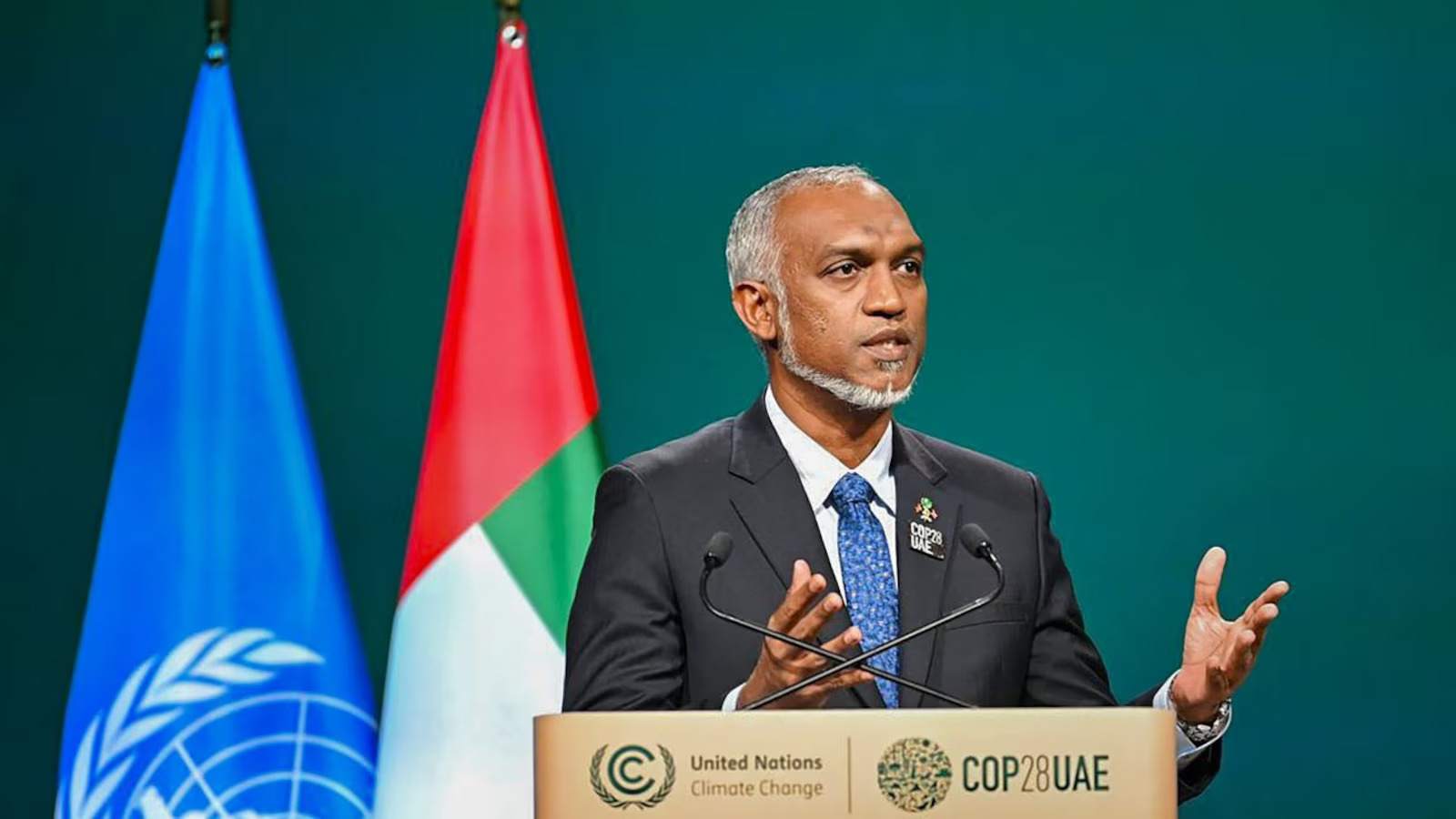Due to tensions between the Maldivian Democratic Party’s founder, Mohamed Nasheed, and Ibrahim Solih—who decided to run for office again against Nasheed’s wishes—Muizzu became victorious. As President, Solih had aggressively promoted a foreign strategy that put “India First.”
However, Muizzu defeated him in the first round by the precise amount of votes that Nasheed’s breakaway party, the Democratic Party, cast. When Muizzu and Solih faced off in the second round, Nasheed’s assistance helped Muizzu secure a majority.
A plot to remove Muizzu from office has now been hatched by MPs from the Democratic Party and the MDP, weeks before this parliament’s mandate is set to expire. Prior to this, four members of Muizzu’s selected cabinet were denied confirmation by the MDP-dominated parliament.

Source: Money Control
As the reason being given for the planned impeachment is that he has endangered the Maldives by alienating India, Delhi, which undoubtedly welcomed the election of Muizzu with undisguised dismay, is certain to be accused of instigating his political troubles. As Mayor of Male, he had supported the two-year-long ‘India Out’ campaign led by former President Abdulla Yameen.
The Modi administration has expressed its disapproval of Muizzu’s decision to make Turkey the destination of his first official overseas tour. As India struggled to arrange dates for his visit to Delhi, a growing #BoycottMaldives movement was beginning to emerge on social media by the time he accepted Beijing’s invitation for his next official overseas tour.
This campaign gained impetus from Prime Minister Narendra Modi’s glowing endorsement of Lakshadweep. Three of Muizzu’s ministers entered the debate with derogatory statements toward the Indian Prime Minister, demonstrating how unrestrained the Maldives’ reaction was.
Source: NDTV
India does not seem to have been satisfied with Muizzu’s suspension of the ministers, and it appears that his strong stance toward China during his visit to Beijing was intended to stab Delhi in the eye. However, Delhi needs to keep its distance from the political conflict unfolding in the Maldives. Anytime a regime change is thought to have support from elsewhere, it backfires on the supposed foreign power.
The defeat of Mahinda Rajapaksa in 2015, which he attributed to India, and which he and his brother Gotabaya both cited in their successful 2019 reelections to become Prime Minister and President, respectively, make this lesson very evident. The brothers were then expelled by their own people, proving that regime change must come from within. The Maldivian parliament will reconvene in the middle of March.
That ought to tell you something about Muizzu’s reputation among his people. On the other hand, things might not have reached this point if India had warned Solih against taking his “India First” policy too far and possibly making anti-India marches illegal. India will lose if Delhi is perceived as manipulating political strings in Male, regardless of whether Muizzu stands down or continues on.
What do you think about this? Comment below.

